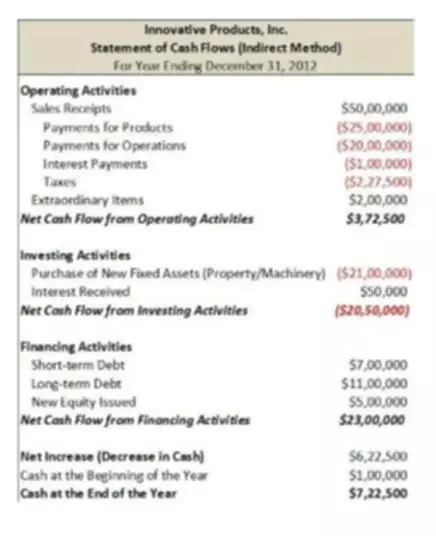What expense category does general liability insurance come under?
Content
- What expenses cannot be insured?
- How Does Business Renters Insurance Work?
- Insurance Deductions and Expenses for Small Businesses
- What types of insurance payments (premiums) can businesses write off?
- Ensure your business expenses are paid if you are suddenly unable to work.
- Department of Financial Services

These insurance premiums are the payments that must be made in order to acquire the policy, and they are often paid in advance and referred to as prepaid insurance policies. As a procurement professional, you must ensure that your organization has the proper insurance coverage to protect against unforeseen risks and liabilities. https://www.bookstime.com/ While it may seem like an added expense, having adequate insurance can save your company from financial ruin in the event of an accident or lawsuit. While there are pros and cons to using insurance operating expenses in business, it remains an essential aspect of risk management planning for any company.
Requirements for workers’ compensation insurance is determined by state law and covers claims for bodily injuries suffered by employees on the job. For insurance policies that protect a manufacturer’s production functions, the expense will be allocated to the cost of production, where it will be divided by the number of units manufactured. When it comes to choosing insurance providers or policies, do your research and compare quotes from various companies. Look for insurers with a strong reputation for customer service and claims handling. Familiarize yourself with the different types of policies available so you can choose what best suits your business needs.
What expenses cannot be insured?
The deduction cannot exceed the earned income you collect from your business. Whether you choose to work with one of our knowledgeable tax pros or file your taxes with H&R Block Online, you can count on H&R Block to help navigate your car related deductions. For example, if 70% of the miles you drive are for business, and the other 30% are for personal, you’ll generally be able to apply 70% of your expenses to your deduction.
- The payment made by the company is listed as an expense for the accounting period.
- One potential downside is that it may be expensive, especially for small businesses with limited budgets.
- Whether or not insurance falls under operating expenses depends on the specific circumstances and nature of your business operations.
- Unfortunately, as Sandler noted, disability insurance for yourself or your employees is not generally deductible.
- According to the IRS regulations for 2021, businesses generally can’t deduct the following costs.
- Using insurance operating expense in business can have both advantages and disadvantages.
- If one has sure to keep the documentation ready at his end, he can avail of the insurance.
If the retailer has incurred some insurance expense but has not yet paid the premiums, the retailer should debit Insurance Expense and credit Insurance Premiums Payable. This insurance generally has a flexible waiting period — that is the length of time before the insurer will start paying you benefits. For example, you can generally choose a waiting period between 14 and 90 days. Because this deduction is considered an above-the-line deduction, eligible taxpayers may claim it regardless of whether they itemize or take the standard deduction.
How Does Business Renters Insurance Work?
The term prepaid insurance refers to payments that are made by individuals and businesses to their insurers in advance for insurance services or coverage. Premiums are normally paid a full year in advance, but in some cases, they may cover more than 12 months. When they aren’t used up or expired, these payments show up on an insurance company’s balance sheet. The accounting treatment of car insurance and product liability insurance will show up on your income statement rather than your balance sheet. Insurance expense will be one of the categories that your income statement lists as an expenditure.
If you use your car solely for business, you won’t need to prorate your deduction. However, many people use a personal car for both personal and business purposes. To figure out what applies to your taxes, you’ll divide the expenses between personal and business use based on the miles that you drive. Car insurance is tax deductible as part of a list of expenses for certain individuals. However, for policies over $50,000, the premiums paid for the amount exceeding $50,000 are considered taxable income for the employee and therefore cannot be deducted as a business expense.
Insurance Deductions and Expenses for Small Businesses
Business expenses insurance pays a monthly benefit — generally for a maximum of one year — to cover fixed business costs if the business owner suffers an illness or injury and is unable to work. This means that the business’ bills can continue to be paid — and the business can stay afloat — without the owner having to dip into their savings or increase their debt while they are recovering. It can be particularly useful for smaller businesses with high fixed costs that are dependent on the income generated by the owner. Unless an insurance claim is filed, prepaid insurance is usually renewable by the policyholder shortly before the expiry date on the same terms and conditions as the original insurance contract.

Business owners can rest assured knowing they are covered if something unexpected happens. Using insurance operating expense in business can have both advantages and disadvantages. Managing an effective insurance program requires https://www.bookstime.com/articles/insurance-expense careful consideration of both potential risks and available resources. If you’re looking for ways to save on operating expenses or improve procurement processes, consider working with experts who specialize in these areas.
What types of insurance payments (premiums) can businesses write off?
Premiums for life insurance covering your employees is generally tax-deductible unless you are directly or indirectly the beneficiary under the contract. Should you become disabled and unable to work, disability overhead insurance can keep your business running. It covers business overhead expenses incurred during long periods of disability caused by your injury or sickness.
Fraud creates an increase in the loss payment amount arising from claims, hence this increases the claim value, which will in the end reflect on the insurance premium; in turn, fraud impacts both insurer and consumer. Businesses can usually deduct insurance premiums in the tax year to which they apply. Nearly all businesses will face some type of insurance expense in order to protect their operations in the event of unforeseen adverse events. Typically insurance payable will be quickly paid by a company in order to avoid any additional fees or loss of coverage. First, a company’s insurance expense is the cost that a company incurs in acquiring insurance policies.
Ensure your business expenses are paid if you are suddenly unable to work.
Unexpired premiums should be listed as prepaid insurance, which is listed in an asset account. Insurance expense is the amount that a company pays to get an insurance contract and any additional premium payments. The payment made by the company is listed as an expense for the accounting period. If the insurance is used to cover production and operation, then the insurance expense can be listed in an overhead cost pool and divided into each unit produced during the period. When this occurs, part of the insurance expense will be listed in ending inventory, and some of it will be listed under cost of goods sold (COGS). • If you have a business and you pay health insurance premiums for your employees, these amounts are deductible as employee benefit program expenses.
Are liabilities an expense?
Expenses and liabilities should not be confused with each other. One is listed on a company's balance sheet, and the other is listed on the company's income statement. Expenses are the costs of a company's operation, while liabilities are the obligations and debts a company owes.
However, there are several ways to save on these expenses and optimize your financial resources. Your balance sheet is a summary of how much your business owns and how much it owes on a particular date. It is divided into a column or section that reflects assets and another column or section that reflects liabilities. Each of these columns or sections is further broken down into categories. All features, services, support, prices, offers, terms and conditions are subject to change without notice.
What expense category is insurance?
For instance, if a fire damages your office building and equipment, your property insurance policy will cover the loss. For businesses that rely heavily on insurance coverage, such as those in high-risk industries like construction or healthcare, operating expenses can be substantial. However, even companies with relatively low risk profiles may find that insurance costs eat up a large portion of their budget. You can only claim the health insurance premiums write-off for months when neither you nor your spouse were eligible to participate in an employer-subsidized health plan.
USAA home insurance review 2023 – USA TODAY Blueprint – USA TODAY
USAA home insurance review 2023 – USA TODAY Blueprint.
Posted: Mon, 05 Jun 2023 12:20:00 GMT [source]
